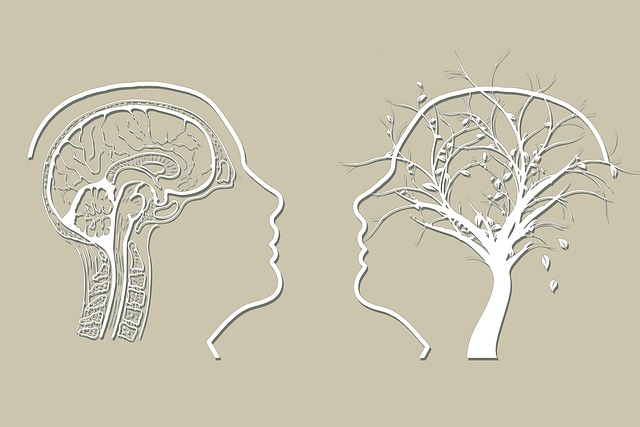Highlands Ranch Codependency Therapy focuses on the connection between codependency and stress, helping individuals break unhealthy patterns and set boundaries. Combining Emotional Intelligence, mindfulness meditation, conflict resolution skills, and structured routines, this therapeutic approach promotes self-care, reduces anxiety, and improves relationships for better mental well-being.
Stress management is a vital skill, and understanding codependency is a key step in this process. This article explores how codependency, a common issue in today’s society, significantly influences stress levels and offers a solution: Highlands Ranch Codependency Therapy. We’ll delve into effective strategies for managing stress, focusing on practical techniques and the benefits of established daily routines. Discover how these approaches can provide long-term stress relief and improve overall well-being.
- Understanding Codependency and its Impact on Stress
- The Role of Highlands Ranch Codependency Therapy in Stress Management
- Practical Techniques for Effective Stress Management
- Incorporating Daily Routines for Long-Term Stress Relief
Understanding Codependency and its Impact on Stress

Codependency, a complex emotional pattern, often goes hand in hand with heightened stress levels. In Highlands Ranch Codependency Therapy, understanding this dynamic is key to effective stress management. When individuals struggle with codependency, they may find themselves overly invested in others’ emotions and responsibilities, sacrificing their own well-being in the process. This can lead to chronic stress as they constantly prioritize the needs of others over their own.
Highlands Ranch Codependency Therapy encourages clients to develop self-care routines and practice emotional intelligence to break these unhealthy patterns. Self-awareness exercises play a vital role in recognizing codependent behaviors, fostering a deeper connection with one’s emotions, and enabling individuals to set healthy boundaries. By integrating self-care into daily life—such as engaging in regular physical activity, maintaining a balanced diet, and practicing mindfulness—people can enhance their mental health, reduce stress, and cultivate a healthier relationship with themselves and others.
The Role of Highlands Ranch Codependency Therapy in Stress Management

Highlands Ranch Codependency Therapy plays a significant role in stress management by addressing underlying emotional and relational issues. This therapeutic approach helps individuals recognize and break unhealthy patterns, fostering better boundaries and communication. By focusing on codependency, participants learn to prioritize their mental wellness and emotional intelligence, crucial components for maintaining overall well-being.
Incorporating techniques from Emotional Intelligence and Mental Wellness Coaching Programs Development, this therapy promotes effective coping strategies. Through personalized guidance, individuals gain a deeper understanding of their emotional responses to stress, enabling them to employ tailored solutions. Ultimately, Highlands Ranch Codependency Therapy empowers clients with the tools to enhance their emotional well-being, ensuring they can navigate life’s challenges with resilience and equanimity.
Practical Techniques for Effective Stress Management

In today’s fast-paced world, stress management has become an essential aspect of maintaining good mental health. For those dealing with codependency issues in Highlands Ranch Codependency Therapy, practical techniques can make a significant difference. One effective method is mindfulness meditation, which encourages individuals to focus on the present moment, thereby reducing anxiety and improving overall well-being. By integrating simple breathing exercises into daily routines, clients can enhance their ability to manage stress and cultivate a greater sense of calm.
Additionally, conflict resolution techniques play a pivotal role in stress reduction. Learning effective communication skills through Mental Health Education Programs Design allows individuals to navigate challenging situations with clarity and composure. This proactive approach empowers clients to address stressors before they escalate, promoting healthier relationships and a more peaceful mindset. Incorporating these practical strategies, as supported by Mental Health Policy Analysis and Advocacy, can lead to profound improvements in managing stress-related issues within the therapeutic setting.
Incorporating Daily Routines for Long-Term Stress Relief

Incorporating daily routines into your life can significantly contribute to long-term stress relief and mental well-being, especially in Highlands Ranch Codependency Therapy settings. A structured routine provides a sense of control and predictability, which is comforting for individuals dealing with stress or anxiety. Starting the day with a consistent morning ritual, such as meditation, exercise, or journaling, can set a positive tone. These practices help clear the mind, boost mood, and prepare individuals to tackle challenges ahead.
Mental Health Education Programs Design often emphasize the importance of self-care routines. By dedicating time each day for activities that promote relaxation and mindfulness, individuals can reduce stress levels and enhance their overall mental health. This includes simple yet effective techniques like deep breathing exercises, regular breaks throughout the day, or engaging in hobbies that bring joy. Implementing these practices into daily life can be a powerful tool for risk management planning for mental health professionals and their clients alike.
Highlands Ranch codependency therapy offers a unique and effective approach to managing stress by addressing underlying emotional dependencies. By understanding and recognizing these patterns, individuals can break free from the cycle of stress and develop healthy coping mechanisms. The practical techniques outlined in this article provide valuable tools for navigating daily stressors, while incorporating structured routines ensures long-term stress relief. With dedicated practice, one can foster resilience and find balance, ultimately enhancing overall well-being.














